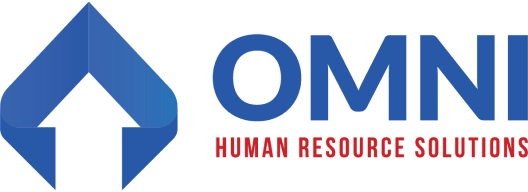Organizations often hire based on technical expertise—but it’s soft skills that determine how individuals perform, grow, and contribute over time. While a strong resume might reflect certifications or years of experience, it’s a person’s ability to listen, communicate, solve problems, and lead that drives team cohesion and results.
At OMNI Human Resource Solutions, we’ve worked with organizations across industries—healthcare, education, manufacturing, financial services, and the nonprofit sector—helping them elevate their teams through strategic people practices. In nearly every engagement, one theme continues to emerge: the importance of soft skills in the workplace is undeniable.
Defining Soft Skills—and Why They Matter
Soft skills refer to personal and interpersonal abilities that shape how individuals work with others, make decisions, and adapt to challenges. These include:
- Communication skills
- Problem solving skills
- Time management
- Active listening
- Emotional intelligence
- Collaboration and teamwork
- Adaptability
- Leadership skills
Unlike technical skills, which are often tied to a specific role, soft skills apply broadly across industries and functions. They influence not just what work is done, but how it gets done—and how people experience that work together.
A few industry examples:
- In a healthcare setting, a hospital operations leader may understand regulations and workflows, but if they can’t navigate team dynamics or communicate changes clearly, trust and effectiveness break down.
- In manufacturing, frontline supervisors with strong technical know-how may still struggle to retain staff if they lack active listening and leadership skills.
- In a private K-12 school, a principal with excellent academic credentials may falter without emotional intelligence and the ability to build trust with staff and families.
- In financial services, a technically skilled advisor who lacks empathy and communication skills may lose clients—even if their recommendations are sound.
In each case, soft skills—including emotional intelligence and communication—make the difference between basic job execution and meaningful impact.
What Employers Are Really Looking For
Hiring trends across industries show a growing emphasis on soft skills. Employers aren’t just evaluating qualifications, they’re assessing how individuals interact, adapt, and contribute to a healthy team culture. Why?
- Soft skills support teamwork. Employees with the ability to collaborate, listen, and manage conflict help move projects forward more efficiently and respectfully.
- They influence retention. People stay in workplaces where they feel heard, respected, and supported. That starts with communication and empathy.
- Customer experience depends on them. From nurses to account managers, frontline staff are often the face of an organization. Customer service improves when employees can actively listen, de-escalate tension, and respond thoughtfully.
- They help teams navigate change. Every organization experiences change—new systems, structures, or strategies. Employees with strong problem-solving skills and adaptability help stabilize those transitions.
Even in industries that rely heavily on technical expertise, the most successful leaders and team members are those with a balanced skill set—combining knowledge with emotional intelligence, listening, and relationship-building.
Soft Skills Across OMNI’s Focus Industries
Healthcare: Beyond clinical or administrative skill, effective leaders in hospitals, clinics, and care facilities must manage emotions under pressure, communicate across roles, and foster patient trust. These capabilities are rooted in emotional intelligence and self-awareness—soft skills that have a direct impact on care quality and employee morale.
Manufacturing: High-growth manufacturers often promote technical experts into leadership roles. But production efficiency alone doesn’t retain workers or reduce turnover. Managers need to be able to provide feedback constructively, build relationships with diverse teams, and solve interpersonal conflicts on the floor—skills that go beyond the scope of technical training.
Financial Services: Trust and credibility are key in this sector. Professionals who excel at communication skills, empathy, and listening tend to build stronger client relationships and retain business. Internally, employees who manage time well, lead meetings effectively, and support collaboration are more likely to progress into leadership roles.
Private K-12 Education: Teachers and administrators manage complex relationships—with students, parents, peers, and boards. Their ability to regulate emotions, communicate expectations, and model respect can shape the entire school culture.
National Nonprofits and Local Government: Whether serving the public or advocating for a mission, soft skills like diplomacy, transparency, and collaboration are essential. Leaders in these environments benefit from a high degree of emotional intelligence and communication finesse.
Embedding Soft Skills into Your Culture
Recognizing the importance of soft skills in the workplace is one thing—developing them across your team is another. Here are a few ways OMNI helps organizations build stronger soft skills across roles and levels:
1. Integrate Soft Skills into Hiring
Go beyond the resume. Use behavioral questions in interviews to uncover a candidate’s approach to feedback, conflict, and collaboration. For example:
“Tell me about a time you had to persuade someone to see things differently. How did you approach it?”
2. Design Leadership Development Programs
Invest in training that develops both technical leadership and the interpersonal side of leading teams. We help organizations build customized workshops that enhance coaching, communication, and conflict resolution skills.
3. Embed Soft Skills in Performance Evaluations
Make soft skills part of your performance conversations—not as an afterthought, but as a core indicator of success. When organizations reinforce these expectations regularly, they become part of the culture.
4. Provide Coaching and Feedback Loops
Coaching is an effective way to support individual development. It gives high-potential employees a space to reflect, learn, and grow. Whether improving communication style, building confidence, or refining delegation, 1:1 coaching accelerates progress.
5. Model Soft Skills at the Top
Executives and senior leaders set the tone. When leaders model listening, thoughtful feedback, and respect across the board, it signals to the rest of the team that these qualities are just as important as output or expertise.
Keep Reading: Developing Tomorrow’s Leaders: Building Leadership from Within
Looking Ahead: Soft Skills and Long-Term Growth
The importance of soft skills in the workplace will only increase as organizations become more complex, diverse, and collaborative. Soft skills are what allow employees to solve problems together, manage change, lead people, and build trust inside and outside the organization.
They’re not a substitute for technical skills—but they’re what elevate them. They help people become more effective team members, more trusted leaders, and more engaged contributors to their organizations’ goals.
At OMNI, we believe soft skills aren’t a trend—they’re a core business strategy. Our clients don’t just want better employees—they want stronger teams, deeper trust, and long-term success. And that starts with the people behind the work.
Let’s Elevate Your Team Together
If you’re ready to invest in your people, develop stronger leaders, or embed soft skills into your organization’s culture, we’re here to help.
Reach out today to explore how OMNI can support your goals through leadership development, coaching, or fractional HR solutions.

Authored by: John Fink, Senior Consultant

